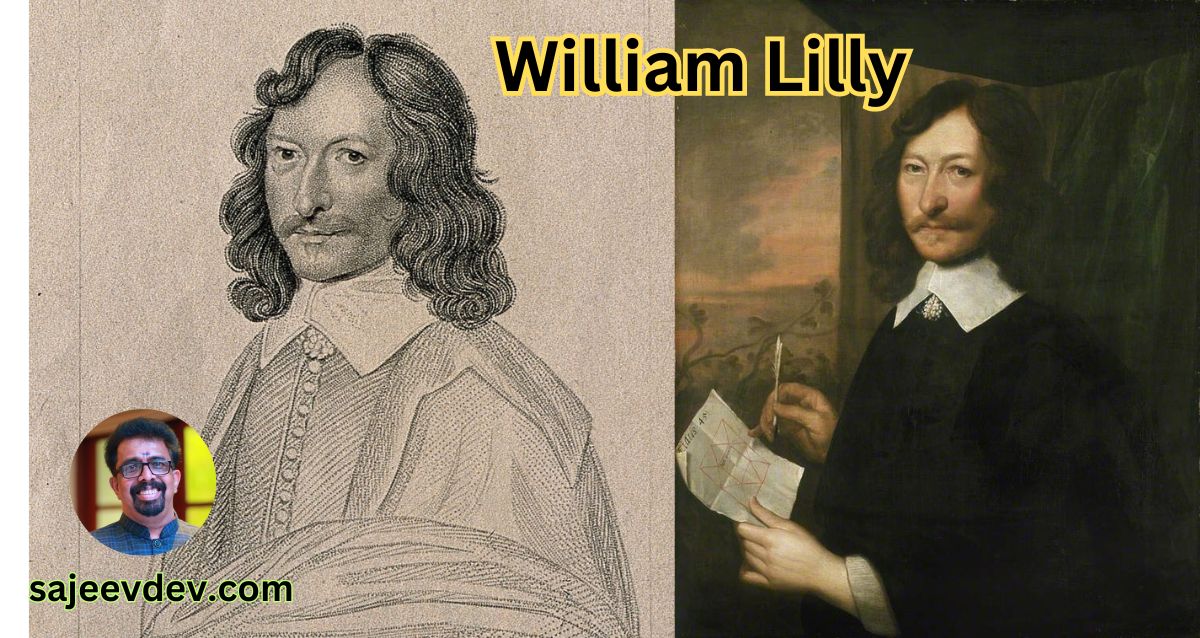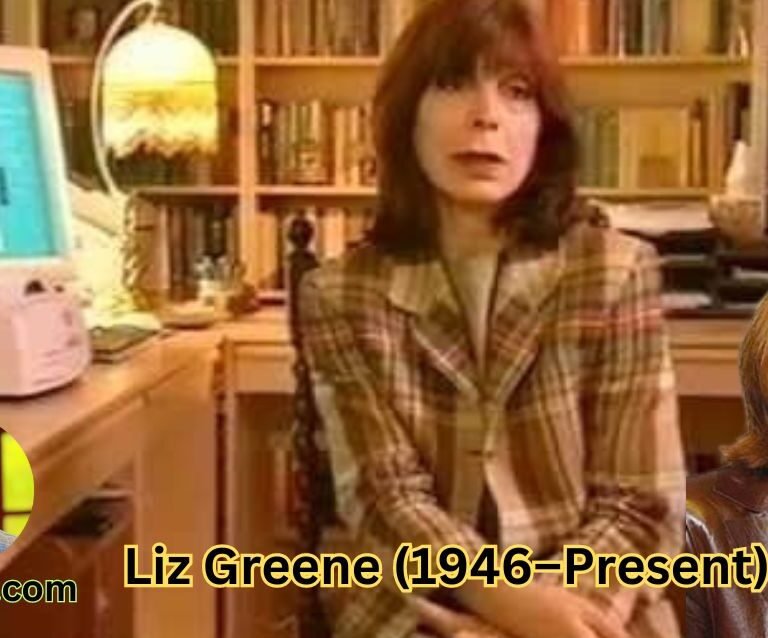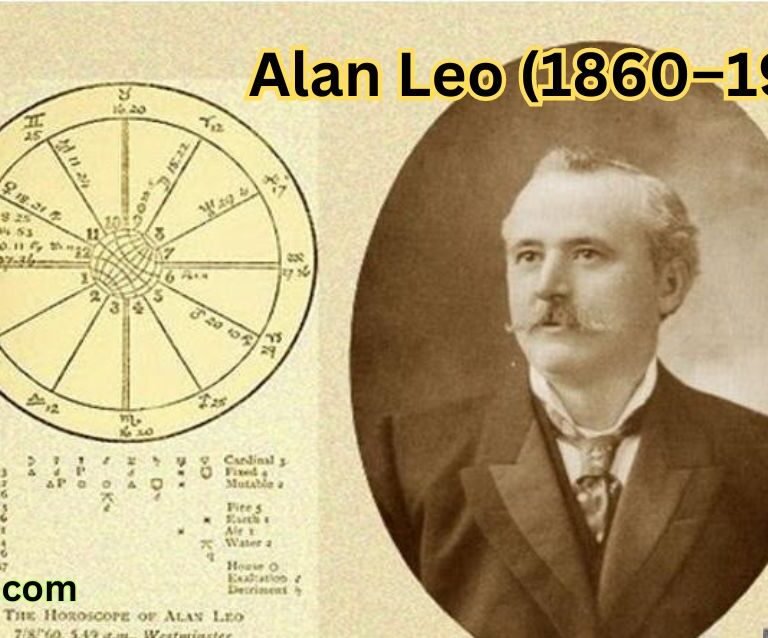William Lilly
William Lilly, born in 1602 in Diseworth, Leicestershire, England, has garnered recognition as a pivotal figure in the development of modern astrology. His early life was steeped in the socio-political upheaval of 17th century England, a period that heavily influenced both his personal beliefs and professional pursuits. Coming from a family of modest means, Lilly was the son of a poor farmer, which instilled in him a profound understanding of the struggles faced by the common man. This background played a significant role in shaping his astrological perspective, as he often emphasized the importance of practical and ethical considerations in his readings.
Lilly’s educational journey began at a local grammar school, where he demonstrated keen intellectual aptitude. His thirst for knowledge led him to explore a variety of fields, including mathematics and natural philosophy, which are foundational to astrological practice. It is during these formative years that he first encountered astrology, likely through the cultural exchanges occurring in the burgeoning intellectual climate of the era. The combination of his formal education and exposure to astrological texts would eventually inform much of his subsequent work.
In the early stages of his career, Lilly was significantly influenced by the works of earlier astrologers and scholars. His interactions with prominent figures in his community allowed him to develop a unique astrological approach, blending traditional insights with his innovative interpretations. As he matured, he began to see astrology not merely as a tool for divination, but as a discipline that could offer valuable insights into human behavior and the unfolding of events. Thus, his early life experiences—including his socio-economic background, education, and formative influences—laid the groundwork for his eventual emergence as one of the most respected astrologers of his time.
The Rise of Horary Astrology
Horary astrology is a branch of astrology that addresses specific questions posed at a particular moment in time, utilizing the positions of celestial bodies to glean answers. Unlike natal astrology, which focuses on an individual’s birth chart and planetary positions at the time of one’s birth, horary astrology emphasizes the moment the query is made. This method seeks to provide insight and guidance on questions regarding relationships, finances, and personal dilemmas, making it a unique and practical approach to astrological practice.
William Lilly, often referred to as the father of modern astrology, played a pivotal role in popularizing horary astrology during the 17th century. His work, particularly his renowned book “Christian Astrology,” not only laid the foundation for horary techniques but also established a systematic approach to interpreting questions. Lilly’s meticulous methods, including the examination of the Ascendant and the Moon’s position in the chart, signify a turning point in astrological practices, as he provided a clearer and more structured framework for practitioners. This rigorous methodology allowed for more accurate predictions and interpretations, setting a precedent for future astrologers.
What distinguishes horary astrology from other branches is its immediacy and practicality. While natal astrology can provide insights into personality and life events over a lifetime, horary astrology focuses on precise circumstances and questions faced by individuals. This immediacy has contributed to its enduring appeal. Consequently, Lilly’s championing of horary astrology helped nurture a greater acceptance and interest in this specific branch, allowing it to flourish as a respected practice within the broader field of astrology. Through his contributions, he not only transformed horary astrology but also solidified its significance within modern astrological discourse.
Christian Astrology: A Landmark Work
William Lilly’s publication of ‘Christian Astrology’ in 1647 marked a pivotal moment in the history of astrology. This comprehensive work not only encapsulated Lilly’s extensive knowledge and innovative practices but also symbolized a significant shift in how astrology was perceived in a largely religious society. Divided into several sections, the book meticulously detailed the foundations of horary astrology, offering readers practical methodologies for interpreting celestial phenomena in relation to human affairs.
In ‘Christian Astrology,’ Lilly employed a rigorous and systematic approach, combining classical astrological principles with a distinct Christian perspective. He argued for the legitimacy of astrology by asserting that it was a divine science aligned with biblical teachings. This marked a transformative moment where astrology was no longer relegated to the shadows of superstition but was instead presented as a credible discipline worthy of scholarly attention. His work included numerous case studies, showcasing the practical application of astrology to various life situations, which enhanced its appeal and credibility among both practitioners and skeptics.
The reception of ‘Christian Astrology’ was a complex interplay of intrigue and criticism. While Lilly gained a following among certain circles interested in the occult and metaphysical practices, he simultaneously faced backlash from religious authorities who deemed astrology heretical. Despite this opposition, the work gained traction, paving the way for future astrologers to gain acceptance in the public domain. Lilly’s detailed methodologies and philosophical grounding provided a framework that influenced modern astrological practices, establishing principles that remain relevant today.
Ultimately, ‘Christian Astrology’ stands as a landmark work that advanced the acceptance of astrology in a time of religious scrutiny, laying a foundational stone for the practice as we recognize it in contemporary society. The importance of Lilly’s contribution cannot be overstated, for it bridges ancient astrological wisdom with a burgeoning recognition of astrology’s value in understanding human experience.
Lilly’s Techniques and Innovations
William Lilly, often regarded as the father of modern astrology, made significant contributions that helped shape the discipline as we know it today. His techniques and innovations laid a foundation for future astrologers, demonstrating a systematic approach that combined traditional astrological knowledge with his unique interpretations. One of his most notable advancements was in the realm of horary astrology, where he skillfully addressed specific client inquiries. Lilly emphasized the importance of precise chart casting, taking into account the timing and location of the questioner, which enhanced the accuracy of his predictions.
In terms of chart interpretation, Lilly introduced methods that were more structured than those employed by his predecessors. He utilized what is known as “signification,” assigning specific meanings to the planets and houses in a natal chart. This approach not only clarified the readings for those seeking guidance but also provided a comprehensive analysis that logically aligned the events in an individual’s life with celestial movements. By categorizing various life themes such as marriage, health, and career within distinct houses, Lilly allowed for a nuanced exploration of personal circumstances, enabling him to offer targeted advice to his clients.
Moreover, Lilly’s emphasis on predictive astrology marked a turning point in the practice. He incorporated transits and progressions into his readings, taking into consideration how the movements of celestial bodies influence the natal chart over time. This step towards a more dynamic understanding of astrology transformed static charts into living templates that could evolve as individuals navigated their life paths. By marrying traditional techniques with innovative thinking, Lilly not only differentiated his work from that of earlier astrologers but also set a precedent for future generations to follow. His insights continue to resonate within the astrological community, proving that the pursuit of celestial knowledge remains a vibrant and evolving field.
Historical Context and Challenges
William Lilly emerged as a prominent figure in the realm of astrology during the tumultuous 17th century in England, a period marked by profound societal changes and political upheaval. This era witnessed the English Civil War (1642-1651), a conflict that not only reshaped the political landscape but also instigated a profound reevaluation of various belief systems, including astrology. As factions struggled for power—primarily between the Royalists, who supported King Charles I, and the Parliamentarians, led by figures such as Oliver Cromwell—astrology found itself at a crossroads, challenged by both the shifting political tides and the prevailing religious sentiments.
Lilly practiced astrology during a time when the scientific revolution began to take root, prompting a clash between traditional astrological beliefs and emerging empirical methodologies. Many viewed astrology with skepticism, associating it with superstition, particularly as radical thinkers advocated for reason and observable evidence rather than reliance on celestial phenomena. This resulted in a divisive public perception; astrology was both revered by some as a guide to the divine and derided by others as mere charlatanism.
Moreover, Lilly’s status as a Royalist during the Civil War further complicated his position within the astrological community. His political affiliations and published works on astrology intertwined with his sympathies, causing backlash from opposing factions. The controversies surrounding figures like Lilly often mirrored broader societal anxieties over order versus chaos, highlighting astrology’s role within the context of an unstable political climate. Thus, the societal and political challenges of his era substantially shaped Lilly’s work and the reception of astrology, allowing his insights on celestial influences to resonate even amid considerable skepticism.
Lilly’s Influence on Future Astrologers
William Lilly’s contributions to astrology have left an indelible mark on the practice and study of the discipline. His pioneering works, particularly “Christian Astrology,” have laid the groundwork for aspiring astrologers and have profoundly influenced the trajectory of astrological thought throughout the centuries. As modern astrologers delve into the intricacies of horary astrology, it becomes evident that Lilly’s techniques and methodologies are not merely historical artifacts but rather dynamic elements that continue to shape contemporary practices.
Lilly’s ability to synthesize traditional astrological knowledge with his unique interpretations established a precedent for future astrologers. Figures such as Richard Nolle and Liz Greene draw upon Lilly’s insights to enhance their own understanding of astrological principles. His quantitative approach to chart interpretation facilitated a shift toward systematic analysis, which has been intrinsic in refining practices surrounding natal and horary astrology. Notably, many modern texts refer back to Lilly for foundational theories, providing readers with context and depth that directly trace back to his writings.
In conclusion, the influence of William Lilly on future generations of astrologers is unmistakable. His comprehensive approach continues to inspire not only scholarship but also practical applications in astrology, reaffirming his status as the father of modern astrology. The modern astrological community acknowledges and builds upon his legacy, ensuring that Lilly’s methodologies remain pivotal in the evolution of astrological practice today.
Personal Life and Beliefs
William Lilly, born in 1602 in a small village in England, experienced a formative upbringing that significantly influenced his eventual identity as the ‘father of modern astrology.’ The son of a farmer, Lilly’s early life was characterized by modest means. Despite this, he demonstrated a voracious appetite for knowledge, which would later play a crucial role in his astrological pursuits. He married Bridgett, with whom he had children, emphasizing his belief in family values, stability, and community in his private life.
Lilly’s astrological work was deeply informed by his spiritual beliefs. A devout Christian, he often sought to reconcile his religious views with astrology. He believed that the stars and planetary movements were manifestations of divine providence, and thus, astrology could serve as a tool for understanding God’s intentions. This perspective was relatively unique during his era, as astrology was often viewed with skepticism by some religious circles. His ability to navigate between these two realms allowed him to establish a framework wherein astrology could coexist with faith.
His writings often reflect this intertwining of astrology and spirituality, portraying a worldview that was both philosophical and practical. Lilly viewed astrology as a means to improve oneself and one’s circumstances, advocating for its use as a guide for ethical living. This belief system not only shaped his astrological practices but also dictated his approach to life, leading him to offer counsel to others seeking clarity in their personal and professional affairs. Lilly’s integration of astrological insight with moral principles underpinned the lasting influence of his ideas, assisting in the evolution of astrology from a mystical art to a more structured discipline.
Criticism and Controversies
William Lilly, often regarded as the father of modern astrology, faced a substantial amount of criticism and controversy throughout his career. The realm of astrology has long been contentious, with practitioners like Lilly often challenged by skeptics who view astrology as a pseudoscience. During Lilly’s time in the 17th century, a growing emphasis was placed on empirical science, and many astronomers criticized the validity of astrological claims. Critics argued that astrology lacked the rigorous scientific foundation required to be considered a legitimate practice.
One major point of contention revolved around the reliance on celestial bodies and their supposed influence on human affairs. Skeptics posited that Lilly’s astrological predictions were merely coincidental and often produced through selective interpretation of events. Challenged by contemporary astronomers, such as Johannes Kepler, who sought to solidify the distinction between astronomy and astrology, Lilly had to defend the relevance and accuracy of his methods. These debates contributed to a schism within the scientific community regarding the place of astrology in academic discourse.
The implications of this criticism extended beyond Lilly’s personal struggles, influencing the broader practice of astrology. His work often served as a bridge between traditional practices and modern interpretations, prompting both acceptance and dissent within various circles. Despite the backlash, Lilly continued to navigate these challenges with a commitment to his craft, publishing notable texts that sought to legitimize his approach to astrology. His ability to argue his perspective showcases a resilience that has inspired future generations of astrologers, even in light of ongoing skepticism and scientific advancements.
William Lilly stands as a monumental figure in the history of astrology, often regarded as the father of modern astrological practices
William Lilly stands as a monumental figure in the history of astrology, often regarded as the father of modern astrological practices. His contributions transcend mere astrological prediction, as they encapsulate a systematic approach to interpreting horoscopes that remains influential even today. Lilly’s works, particularly his seminal text “Christian Astrology,” established a foundation that combined rigorous methodical calculation with profound philosophical insight. This synthesis not only elevated astrology from a rudimentary craft to a respected discipline but also set a precedent for future astrologers to build upon.
One of the most notable aspects of Lilly’s legacy is his emphasis on the ethical dimension of astrology. He approached the practice with a sense of responsibility, instilling in practitioners the importance of considering the implications of their predictions. Through his writings and public persona, Lilly helped to elevate the perception of astrologers, fostering a greater societal acceptance of astrology as a legitimate field of study. His insistence on integrity and ethical conduct continues to resonate within the community of modern astrologers who share a commitment to these principles.
Furthermore, Lilly’s innovative techniques, such as his use of horary astrology, have shaped the way astrology is practiced today. He introduced methods that allowed practitioners to answer specific questions through the casting of a chart at the moment of inquiry, significantly broadening the scope of astrological applications. This approach has been adopted by many in the contemporary astrological community, emphasizing the ongoing relevance of Lilly’s methods.
Ultimately, William Lilly’s lasting legacy is characterized not only by his contributions to astrological technique but also by his role in shaping the ethical framework of the craft. As astrology continues to be explored and embraced in modern contexts, the principles established by Lilly remain foundational, illustrating the enduring impact of his work on both practitioners and enthusiasts alike.









